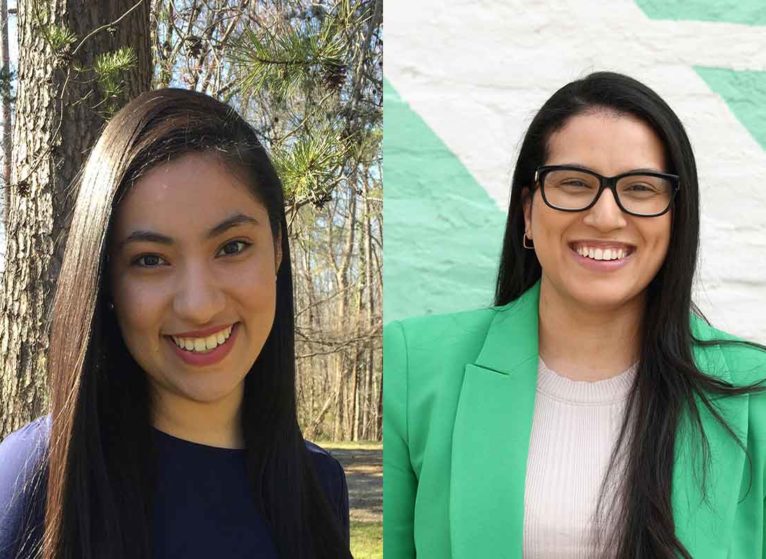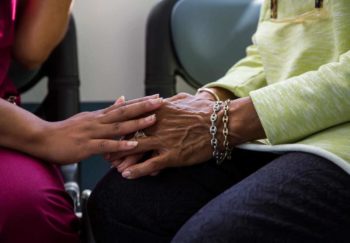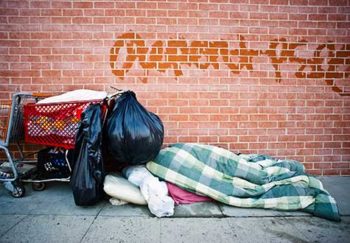In the U.S., National Hispanic Heritage Month (NHHM) is from September 15 to October 15. It’s a time to honor and celebrate the contributions of Hispanic and Latinx people in our community and country.
At UVA Health, we’re proud of the diverse cultures that make up our patient and team member populations. For NHHM, we honor the efforts of our Hispanic and Latinx team members. We’re highlighting the work and experiences of two team members: Keyri Lopez-Godoy and Yeda Duarte-Pierce.
Hispanic Heritage Month: Celebrating Our Team Members
Lopez-Godoy is both an outreach and engagement specialist in the UVA Cancer Center and a community health worker for the Every Woman’s Life program. (The Every Woman’s Life program helps women between ages 40-64 without health insurance to get free health screenings.) “We're trying to make a difference and we're trying to help people the best that we can with what we have and the time that we have. And, I'm just thankful for the work that I'm getting to do now,” says Lopez-Godoy.
A native of El Salvador, she came to the U.S. at 8 years old. Before joining UVA Health, she spent time as an elementary school teacher. “I taught first graders, and that was so much fun! And it was also exhausting! It was draining. But, I loved it, and I got to see just how important it is to build relationships, to build common values, to build community, and to establish a relationship based on care and mutual respect, even at that young of an age.”
Duarte-Pierce is Brazilian-American. Her family was part of the U.S. military and her parents met in Brazil. She’s a citizen of both the U.S. and Brazil. She is a supervisor for patient access for UVA Health’s spine department. “It's nice to have that representation as well, personally, and all my other counterparts are from different Spanish-speaking countries. So it's nice to have the Brazilian representation,” she says.
She’s also a licensed physical therapist assistant (PTA). “I like to see where I've made a difference in someone's recovery process,” she says. “Physical therapy is one of those fields where you can really see a difference because you have invested so much time and effort helping the patient progress back to optimal performance or close to optimal levels.”
Building Community, One Conversation at a Time
Both also work with UVA’s Latinx Employee Resource Group. Their goal is to help Latinx and Hispanic team members across grounds create a more inclusive culture for community and team members by sharing resources, networking, and setting up events.
We asked them about how their experiences and views have shaped their time here at UVA Health, and what they’re doing to celebrate the month.
How did you wind up working at UVA?
Lopez-Godoy: After 3 years of teaching, I decided to take a break. A family member who works at UVA and knows me, knows things that I’m passionate about and interested in, she shared with me that there was an opportunity in this program at UVA Health called the Every Woman's Life program. And she thought it would be a good fit. She sent me the information, and when I read through it, it was an immediate draw. I was immediately curious and interested. And here I am a year later!
Duarte-Pierce: After obtaining my master in business administration (MBA), I wanted to transition into a leadership role that would provide me an opportunity to execute the skillset that I developed from clinical practice as a PTA, in addition to the financial fundamental principles that I obtained within my MBA program. My husband was already employed with UVA Health as a manager for the Ambulatory Pharmacy department, where he oversees the Transitions of Care and Meds to Beds program. The opportunity presented itself for the role that I currently serve in, and right away I knew this was the perfect career move for me.
What inspired you to work in medicine?
Duarte-Pierce: I’ve always possessed the servant leader attribute while providing patient care. The caregiver trait has always been ingrained in my mindset and actions. I like to be part of a patient recovery process and it’s rewarding to see a patient progress and improve from the initial interaction to discharge. In physical therapy, building relationships with patients and navigating with the patient during the recovery process is inevitable and rewarding. This is why I work in healthcare.
Lopez-Godoy: After teaching, I thought, “What do I know as a person? What skills do I have and how can I use these skills to transfer into me my next adventure?” I wanted to venture out a little bit into something different than being in the classroom.
UVA's Latino Health Initiative: Community Education & Health Programs
UVA's Iniciativa de Salud Latina (Latino Health Initiative) serves the local Latino & Hispanic community through health services and education, with several community health programs and a Spanish-language radio program (Poder Latino, on WXTJ 100.1 FM, Sundays from 10 a.m. - noon).
How has your background played a role in your work and how you interact with patients and others?
Lopez-Godoy: I feel like because of my upbringing, because of the values that were instilled from a young age — respect, kindness, the value of family, community, perseverance, hard work — all those values have really shaped the way that I communicate, that I express myself, and that I carry myself. It’s almost like the cultural sensitivity is a byproduct of those values. And so my background has made a really big difference in the way that I interact with patients.
I think it has been representation — people actually seeing that someone that looks like me cares about these topics and is trying to help me. I think it also has to do with the language — people can relate and come talk to me in a language they feel comfortable in, using words that they know.
Duarte-Pierce: My military and dual citizen background has molded the way I interact with patients through being more open-minded, and displaying acts of empathy while being able to understand others. I can relate to the patient on so many levels.
Do you have a memory of an interaction with someone that changed how you thought or felt about your identity? What lessons did you take from this experience?
Duarte-Pierce: While working as a PT tech years ago, I was cleaning tables and chatting with a patient. I told him I was applying to PTA school and was excited. He in return mentioned, “If PTA school doesn’t work out, you could always clean rooms.” That was a pivotal moment in my life. I felt stereotyped and discriminated for my identity and culture. Instead of allowing this experience to defeat me and define me as a person, I used the experience to ignite a flame of passion within me to excel in life that can never be removed. From that moment on, I have challenged myself academically, mentally, and physically in striving for excellence and never settling for mediocrity. Ambition is something that runs through my veins, and I will never allow an individual to categorize me as inferior or subpar because my of heritage and identity.
Lopez-Godoy: Within my team, when we have conversations, we have check-ins. “How are you doing? How are things going?” When we do our check-ins, it feels like we're in a school and we're teaching and we're learning from each other. And that's so special to me. I've had such meaningful and fun conversations over the last year, about language, about food, about music, about am I using the right messaging, should I be using a different word? I think it has a lot to do with the type of people that they are and the experiences that they're bringing. And their ability to just be open-minded and receive someone that has a different experience. I feel that my voice is valued and that my ideas are respected and actually taken into account. And that is huge.
I'm just thinking particularly of a patient that I recently talked with. We had a pretty long conversation. It went from actually talking about her joining the Every Woman's Life program to her sharing so many other barriers and needs, and sharing her life story with me. She was taking that time.
And what's interesting about that is, in the year that I've worked here, I have found more often than not the patients that I get to talk to, we don't end up just talking about the Every Woman's Life program and scheduling. We end up talking about their family, and why they maybe held off on getting a mammogram for so long, or why they didn't even know that a mammogram was important. Or we end up talking about upcoming events with the family, or their child is interested in the medical field. It's been really special. There's a lot of gratitude between the patient and myself, too. I'm grateful that they feel comfortable enough to open themselves up a little bit more and ask questions and talk about their experience.
What tips would you give people for becoming more culturally competent towards people of Latinx/Hispanic identities?
Lopez-Godoy: I recently came across an article that I thought was useful. It was something like “Fourteen Things You Should Never Say to a Latina.” And there were some that caught my attention. So the first one is, ‘You don't look Latina.’ I think that goes for generally, any group. We all know that there is a spectrum of how people look and sound in the world. And Latinos and Hispanics are just a heterogeneous group of people — we can't generalize. So that was one that resonated with me because I have been told that before.
And then the other one was, ‘Where are you from?’ And in the way that this article says it, which is, ‘Where are you from? No, no originally.’ So, there are just better ways of asking if you want to know where somebody's from, and not assuming that just because I may look exotic, that I may be foreign. Again, it goes back to that idea that many of the people that look like us are still being born within the United States.
Those stuck out to me, and I wanted to pass those on.
Duarte-Pierce: To be open-minded, embrace the culture, and not judge a book by its cover. You never know who you’re going to meet and what their background is. Ask questions. This will only allow you to be more educated. Never make assumptions, but rather always seek confirmation when searching for answers.
How have you celebrated Hispanic Heritage Month?
Duarte-Pierce: I went to Brazil recently to visit family and brought my husband and friend for the first time to enjoy the food, weather, culture, and all that the country has to offer. That’s how I celebrated.
Lopez-Godoy: Growing up, I celebrated this month through church activities. And at school, we also did different activities. And it was so much fun, because I got to highlight for my classmates really cool things about my own country. I felt like that was so special.
In a bigger way, through the community, we went to CVille Sabroso. Prior to the pandemic, I think we went almost every year since it started. And then the pandemic hit, and unfortunately, they weren't able to have it. But they brought it back again this year. So I’m excited to see what it looks like this year.


